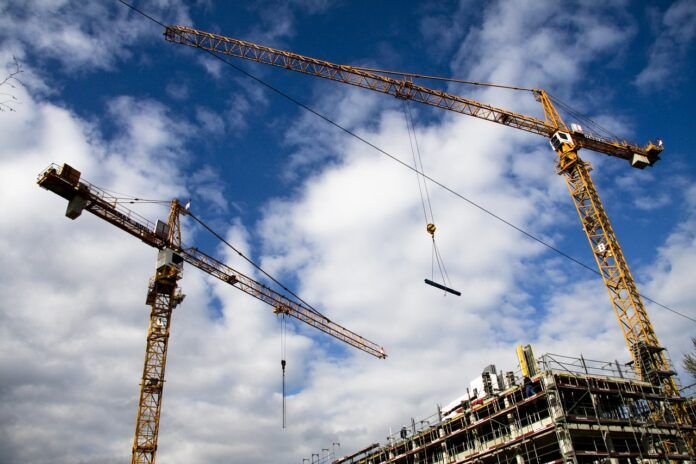The Northern Regional Construction Association is reporting more jobs than it did pre-pandemic.
The sector’s employment base has risen by 4.4% since February of 2020 – however, our region has the fewest construction employees, and its growth only amounts to just over 700 new jobs.
CEO, Nicole Bryant told Vista Radio the north is the only area of the province that has not seen work come to a halt.
“The biggest thing that is contributing to the employment up here is just the sheer number of projects. We are one of the regions that haven’t started to see a decline or slowdown in the projects that are happening in our region.”
“We are the largest region geographically in BC but we are the smallest in numbers. It is a growth, albeit a small one.”
The value of current construction projects in BC is roughly 157-billion dollars – approximately 85-billion or over half of that amount is for projects in the north.
Bryant added recruitment and retention of construction workers in the north is anything but a free lunch.
“Sometimes you are working in a remote location or in a harsh environment.”
“I think that presents more of a challenge than an opportunity. We are very spread out and we do face a lot of harsh climate up here when it comes to construction. We are battling against the weather in the winter, the area in which some of our projects are, which can be remote. This can be a deterrent for our area.”
According to a report from the British Columbia Construction Association, the province’s construction employment base has dropped by 14,500 workers, a 6% decline when comparing the first and second quarters of 2023.
Those job losses are mostly concentrated within the Lower Mainland as the Vancouver Regional Construction Association accounts for nearly 60% of all construction jobs in BC.
As of August, contractors in the VRCA collectively employed 27,100 fewer workers than in February of 2020 – a drop of 16.9%.
Construction costs are also surging as a result. Between 2020’s first quarter and the second quarter of 2023 – Stats Canada’s non-residential building price index (a reflection of how much more it costs to construct a building) rose 29%.
The report stated construction wages in Canada have risen 15% since the start of the pandemic, while provincial industry wages spiked at a faster clip (18.4%).
Buildforce Canada is projecting more than 244,000 construction workers will retire in the next decade.
In addition, Bryant is calling on the province to issue prompt payment legislation to better support contractors in the industry.
Ontario amended its law to require an owner to pay a contractor within 28 days of receiving an invoice – in addition, a contractor then must pay a subcontractor within a week of receiving payment.
Alberta and Saskatchewan have also enacted a similar policy. Similar efforts are also taking place in Quebec, New Brunswick, Nova Scotia and Manitoba.
Bryant lamented the lack of such a policy often forces contractors to raise their bid prices due to higher risk mitigation costs.
“Not having prompt payment legislation or anything to enact can bankrupt or put some of our contractors out of business when they are waiting 90 to 120 days or sometimes beyond – even a few years for payments.”
“That lack of cash flow can really cripple a contractor. So, it has a huge impact on the construction industry in that respect and the other side of that is just the risk. The transfer of risk and when that happens, a contractor realizes that when he must hold those receivables as they do, they end up taking on that risk and increasing their bid prices to help cover the risk they are seeing.”
According to the report, 82% of contractors surveyed were paid late for work at least once while more than a third of contractors were paid late more than a quarter of the time.
The Construction Association also noted 92% of construction companies in BC employ 20 workers or fewer and often have less than a decade of on-the-job experience.
The average yearly wage for a construction worker in BC is $72,252 – a spike of 25% over the past five years.
Roughly 23,000 job openings in the sector will be available province-wide due to retirements and expansion by 2032.
Women make up 4.5% of the construction trades workforce in BC.
The full report can be found here.
Something going on in the Prince George area you think people should know about?
Send us a news tip by emailing [email protected].






